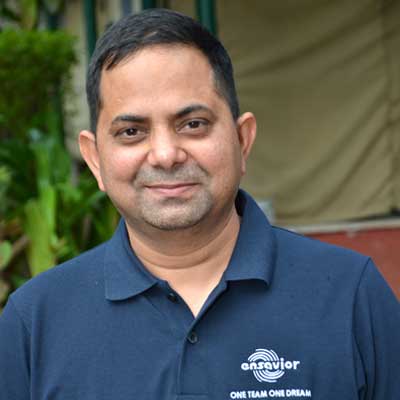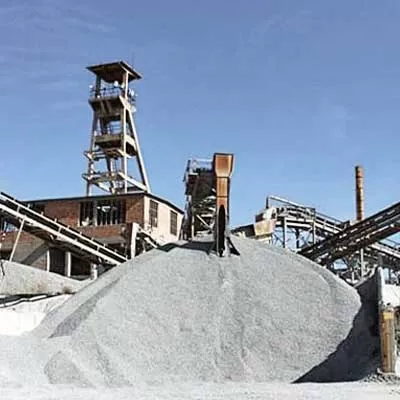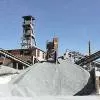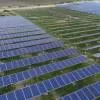The indoor air quality of non-residential urban buildings in India is a matter of concern, more so after the COVID-19 pandemic. The pandemic has also exposed the need for high-quality air filtration systems.Within nine years of establishment, Ensavior Technologies has built enduring relationships with major contractors and corporate entities, contributing to the creation of airports, office complexes, IT parks, trade centres, metro-rail projects, malls, hospitals, five-star hotels, schools and manufacturing facilities across the Indian subcontinent. Dinesh Semwal, Founder, Ensavior Technologies, discusses the demand for air filtration systems amid the pandemic and more, with SERAPHINA D’SOUZA.How did Ensaviour originate? Tell us about the journey and business model.After working for nearly two decades in the building services industry, I realised the need for smarter and healthier buildings with high-performance engineering solutions in an environmentally sustainable way, which led me to start Ensavior. The journey started with products related to energy conservation. Gradually, we added a host of services with excellence in quality and engineering services and eventually became a full-service design, engineering, sales, maintenance and manufacturing company. Today, Ensavior offers holistic solutions to its clients in heating, ventilation, air-conditioning (HVAC), public health engineering (PHE), indoor air quality (IAQ) and fire. With a combination of state-of-the-art products and professional engineering expertise, Ensavior manages its business based on three diversified segments within the building service industry:Distribution and tradingManufacturing and assemblyAfter-sales services and maintenanceStarting a venture from scratch and establishing enduring relationships with major stakeholders and corporate entities and becoming a preferred vendor within a decade of establishment is an exceptionally satisfying and rewarding experience. From the three diversified segments you mentioned, which do you consider the most challenging and how do you approach it to overcome the challenges?Every business faces pre-existing challenges depending on the size, type and industry. If you review our business model carefully, you will find Ensavior primarily works around water and air related to the building services sector. The activities we perform around water and air are transportation (of water in a building), treatment, filtration, energy storage and purification, and this reflects in all our three verticals. As far as challenges are concerned, currently I see the COVID-19 situation as the biggest roadblock that has jolted businesses around the globe. The lockdown restrictions and managing affairs from home most of the time have made it tough, but I am hopeful that, with vaccinations in place, this will settle soon. On the positive side, COVID-19 has increased the demand for your products….Fortunately, the outbreak of the pandemic has brought monitoring IAQ to the forefront. After COVID, almost all establishments with occupants are investing in IAQ and ventilation systems. As occupants are getting more concerned about their safety from viruses after getting back to their workplaces or residential set-ups, business owners and other such establishments are implementing high-quality filtration that could reduce infection risk and encompass required humidity levels at the same time. So, yes, fortunately, the products and solutions pertaining to air purification that were being treated by users as ‘good to have’ are now becoming ‘must have’.What spike in demand for high-quality air filtration systems have you witnessed during the pandemic? Several clients, including corporate clients, homeowners, hotels, hospitals and residences, have requested air purifiers and filtration systems. The demand for UV system products has significantly risen owing to the efficacy of UV rays in purifying the atmosphere. This technology has a long and reliable track record for a reason and the market demand reflects its effectiveness.Any recommendations to the Government in terms of IAQ concerns and how they can adopt these in their policies or planning of smart cities?The Indian Society of Heating, Refrigerating and Air Conditioning Engineers (ISHRAE), Indoor Air Quality Association (IAQA) and other related societies are doing a great job in formalising the guidelines on handling HVAC in the COVID scenario. However, serious awareness with policy guidelines at the level of policymakers needs to be taken up. Companies like Ensavior, who is an expert in the customised air purification segment, together with like-minded people and organisations would certainly like to be part of the team to take the necessary steps at appropriate levels to help form necessary guidelines in the overall interest of better IAQ and OAQ for our current and future generations.With regard to HVAC, could you elaborate upon how an effective HVAC system can help improve the energy efficiency of a building?Energy conservation is a fundamental component of commercial facility operations. Energy-efficiency is the first criterion people look for from any machine. I would say that it is no different for HVAC systems as well. There are different ways to make an HVAC system energy-efficient. The factors affecting efficiency could be based on the type of system you have and how it is maintained. There’s a saying that the cheapest kilowatt-hour is the one you don’t use. HVAC energy-efficiency starts with a mindset of using less and getting the most out of what you have. As HVAC systems represent a significant portion of typical energy costs, making even the slightest changes to your existing system can make it more energy-efficient. Where do you see the HVAC industry heading in the coming decade?The HVAC market is currently being negatively affected by the pandemic, both on the demand and supply sides. The frequent lockdowns in India and several countries have affected the manufacturing and import of equipment. This, however, is going to settle sooner than later. And the growing environmental concerns that have propelled the demand for energy-efficient products, growing urbanisation, ECBC norms and awareness of green and sustainable developments will definitely give a boost to the overall HVAC industry. I see many opportunities coming up for the industry, with more and more people recognising the importance of IAQ. All these factors will enable the HVAC market to achieve the estimated size of $ 31,500 million by 2030, at a CAGR of 16 per cent in the coming decade.What are your future expansion plans?We are optimistic about the future and using this time of crisis to brainstorm, strategize and plan future growth and expansion towards making the company a global player. Developing economies are our target market. We are working on solutions and products as needed by these economies. We have a blueprint ready, which we are refining considering current restrictions and challenges. Apart from this, we are looking at the possibilities of exploring new geographies and industries for our existing product portfolio.


















